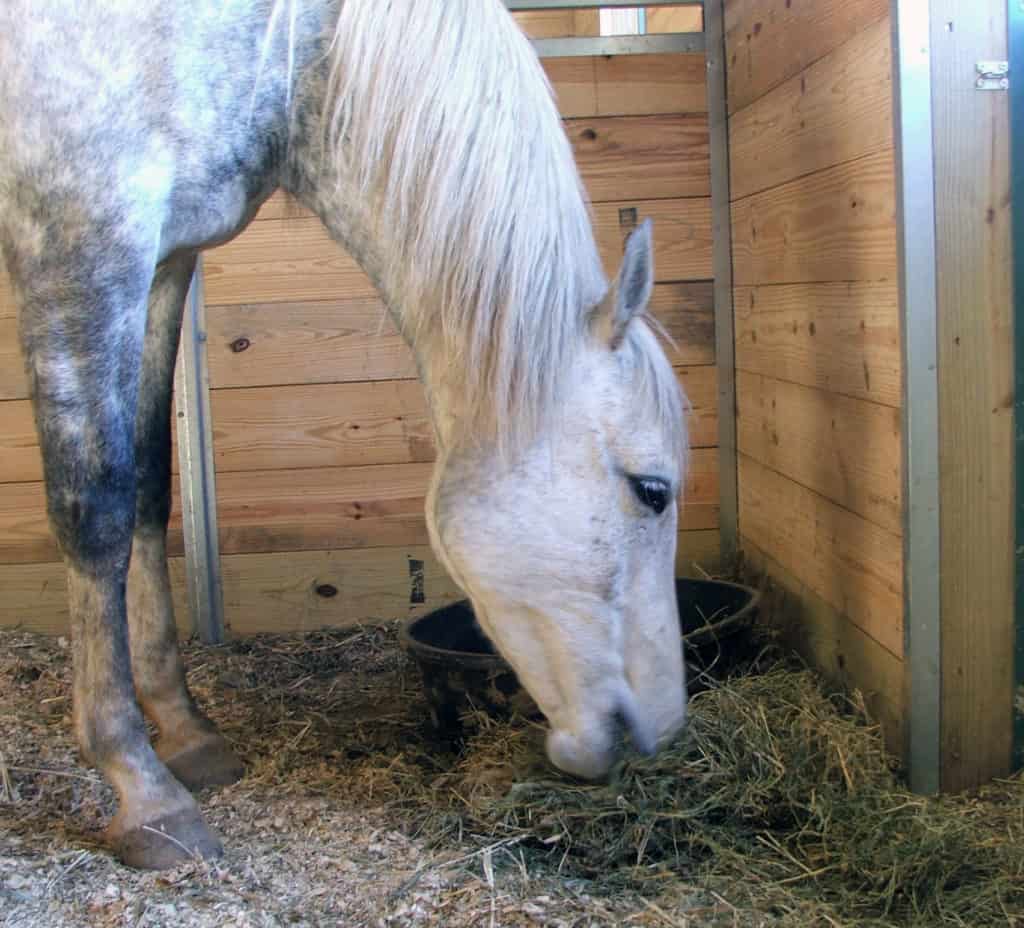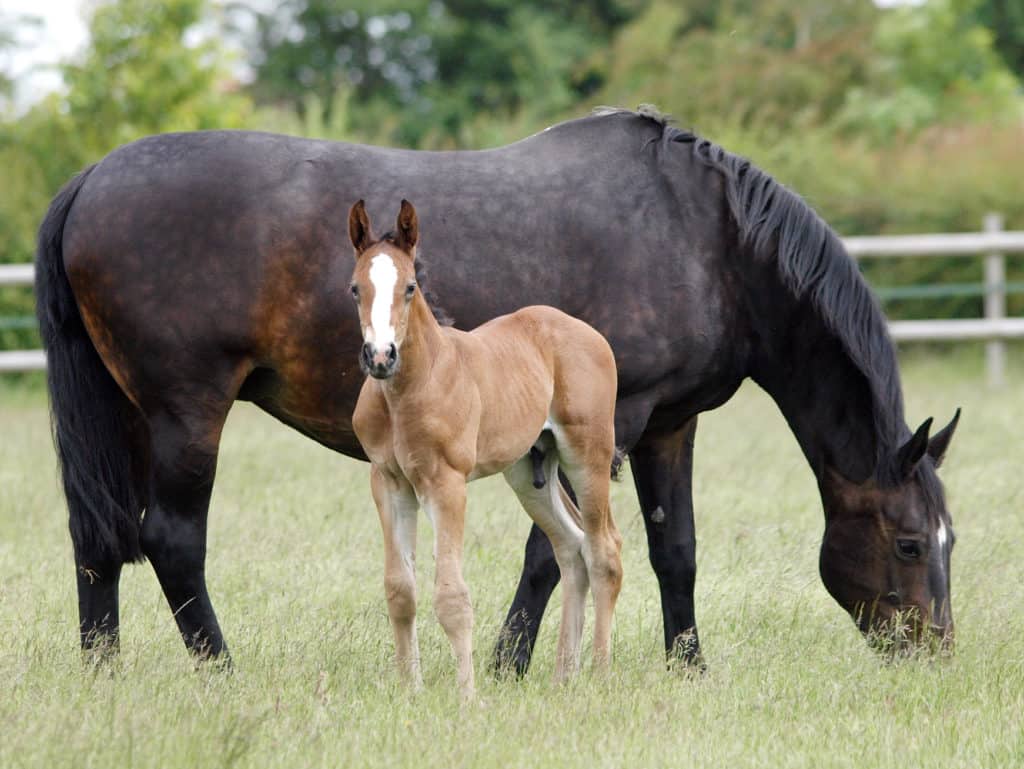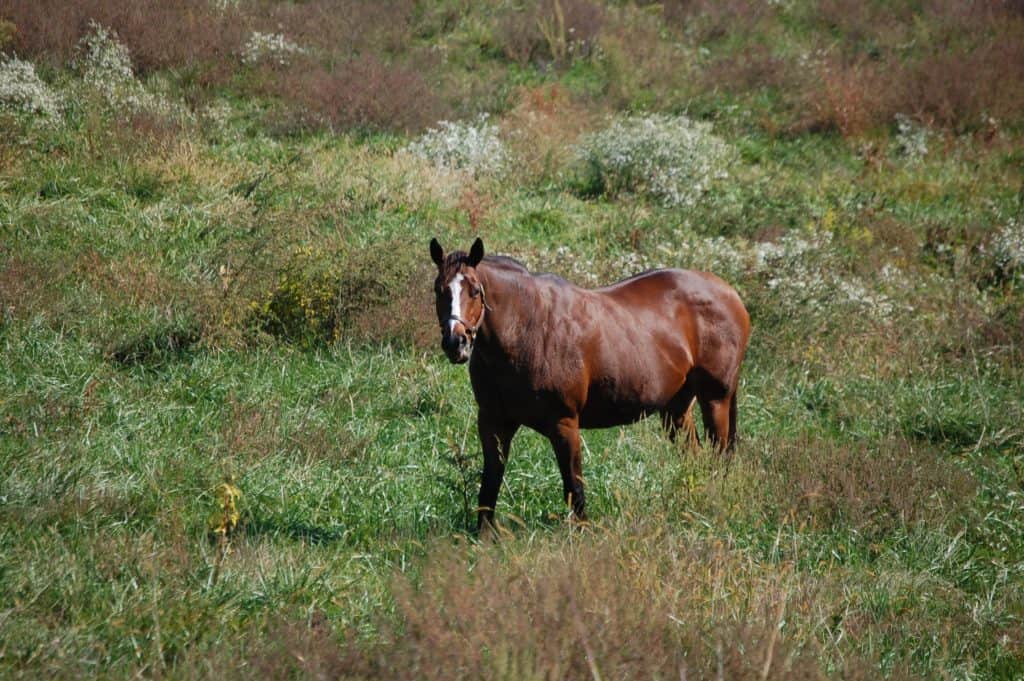
Feeding Choke-Prone Horses
Find out which horses are at the highest risk for feed-related choke and what you can do to reduce that risk.

Find out which horses are at the highest risk for feed-related choke and what you can do to reduce that risk.

Switch your horse’s feed type or amount gradually to minimize his risk of digestive upset. Plan any nutrient-dense dietary changes carefully to avoid health problems such as colic or laminitis and to allow for maximum nutrient digestion.

When buying horse feed, you might face the choice between “textured” and “pelleted.” Our nutritionist explains the difference.

We must consider the breeds of our horses and ponies when planning their diets. Here’s a look at what we currently know about feeding major equid categories and where we’re heading.

Whether you’re taking your horse on a back-country vacation, moving out of state, or traveling to the World Equestrian Games, don’t assume your horse’s feed will be available at your destination.

A brief period of fasting prior to omeprazole administration could help maximize drug absorption and, thus, efficacy.

An automated feeder that provides grain in multiple small meals throughout the day might help reduce the prevalence of gastric ulcers in horses in training.

Does your herd leader get too much to eat while the low man doesn’t get enough? Here’s our expert’s advice.

Does your performance horse need to pack on a few more pounds? Here are some tips to consider when managing a hard-keeping equine athlete.

Although owners are frequently warned against the consequences of feeding these carbs, horses need them in their diets.

A horse owner who also has beef cattle wants to know if all-purpose, multispecies feeds are okay for horses. Our equine nutritionist responds.

Our nutritionist helps a reader make sense of horse feeds advertised as low-sugar, low-starch, lite, and more.

Find out how some simple diet changes might help calm your hyperactive horse.

Lactating mares’ nutritional requirements increase drastically in order to maintain weight while providing nursing foals with enough critical nutrients.

This suggests old horses need an appropriate diet and management plan to help minimize the risks associated with insulin dysregulation, such as laminitis.

Consider these dietary changes to help reduce the laminitis risk and discuss with your veterinarian whether certain medications could help your horse.
Stay on top of the most recent Horse Health news with
"*" indicates required fields